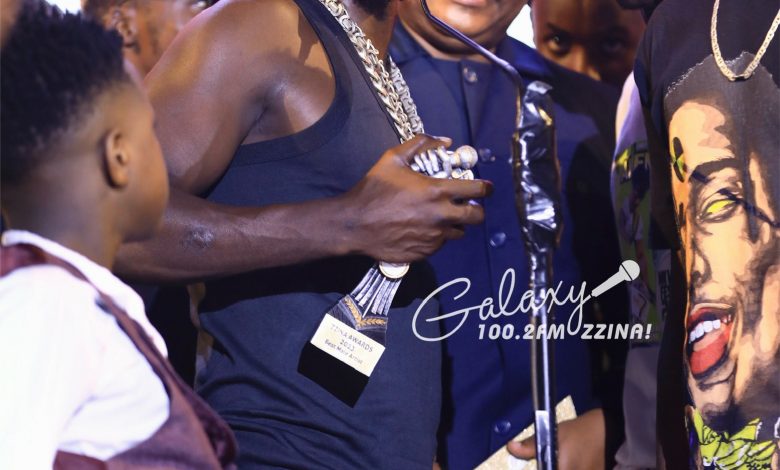From Ghetto beats to political streets: Is Alien skin the next Bobi Wine?
For those who remember Bobi Wine's transformation from ghetto artist to Member of Parliament and eventual leader of the National Unity Platform (NUP), Alien Skin's current trajectory is strikingly familiar.

In the world of Ugandan music and politics, history seems to be repeating itself. Alien Skin, a self-proclaimed ghetto superstar with a reputation for rebellion, is quietly charting a path that mirrors the early days of Bobi Wine’s rise.
Both artists, once dismissed as gangster misfits, are now linked to political movements, with Alien Skin recently pledging support for Mathias Mpuuga’s new Democratic Alliance (DA).
For those who remember Bobi Wine’s transformation from ghetto artist to Member of Parliament and eventual leader of the National Unity Platform (NUP), Alien Skin’s current trajectory is strikingly familiar.
Like Bobi Wine, Alien Skin’s music is a raw reflection of ghetto life, giving him a deep connection to the youth in Uganda’s underserved communities.
Alien Skin, often criticized for his unconventional style and rebellious image, has gained widespread popularity among Uganda’s urban youth.
His street credibility and unapologetic demeanor echo Bobi Wine’s early years when he was derided as a weed-smoking ghetto artist with no place in politics. Yet Bobi Wine’s entry into politics silenced critics as he galvanized millions, becoming a symbol of hope for the oppressed.
Now, Alien Skin appears poised to follow a similar path. His recent endorsement of Mpuuga’s Democratic Alliance adds weight to the newly formed political entity. Mpuuga, a former Leader of the Opposition in Parliament, broke ranks with NUP, citing its lack of vigor, and is now rallying for renewed opposition unity.
“The leading opposition political party in Uganda is in deep slumber, how does that happen?” Mpuuga asked during the DA’s unveiling in Kampala. Alien Skin’s alignment with this movement suggests he sees a role for himself beyond music, much like Bobi Wine did during his transition into politics.
Political analyst David Mukasa notes the parallels. “Bobi Wine was once written off as a ghetto gangster, yet he became a national figure fighting for democratic change. Alien Skin may be viewed the same way now, but his connection to the youth and ghetto communities gives him potential to wield influence,” Mukasa says.
However, critics argue that Alien Skin lacks the political maturity and strategic planning that propelled Bobi Wine’s success.
“Bobi Wine had a clear vision for change and worked tirelessly to build a political platform,” says Sarah Nabwami, a political commentator. “Alien Skin needs to demonstrate more than just ghetto popularity if he wants to make a meaningful political impact.”
Despite the skepticism, Alien Skin’s move into politics comes at a time when the opposition is searching for fresh voices and unifying figures. Bobi Wine’s rise proved that the ghetto’s voice could not be ignored, and Alien Skin’s endorsement of the DA indicates he may see himself as the next bridge between music, activism, and politics.
Whether Alien Skin will go as far as Bobi Wine remains to be seen, but his story underscores a growing trend in Uganda: the power of the ghetto to produce leaders who defy traditional political norms. As the 2026 elections approach, the parallels between these two ghetto icons could become even more apparent, reminding Uganda that the voice of the streets often echoes louder than expected.







